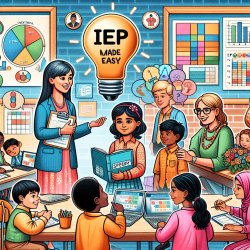The well-being of adolescent girls is a complex and multifaceted issue influenced by various contextual factors. A recent qualitative metasynthesis titled Contextualized perspectives of well-being for adolescent girls: a qualitative metasynthesis sheds light on these influences and offers valuable insights for practitioners seeking to improve their skills and interventions.
Understanding Contextual Influences
The research emphasizes that well-being is not solely an individual experience but is deeply rooted in the context in which adolescent girls operate. Factors such as family dynamics, community expectations, and societal norms play significant roles in shaping their well-being. Practitioners can enhance their effectiveness by recognizing these contextual influences and tailoring their approaches accordingly.
Key Findings from the Metasynthesis
- Unequal Access to Resources: The research highlights that girls often face disparities in accessing resources compared to boys. This inequality affects their opportunities and overall well-being.
- Expectations as Stressors: Community and family expectations can become stressors for girls, impacting their mental health and self-esteem.
- Comparative Thinking: Girls frequently compare themselves to peers and societal ideals, which can influence their self-image and social interactions.
Implications for Practitioners
Practitioners working with adolescent girls can benefit from this research by incorporating a more holistic understanding of well-being into their practice. Here are some strategies to consider:
- Cultural Sensitivity: Recognize the cultural and societal norms that may impact girls' perceptions of well-being. Tailor interventions to be culturally sensitive and contextually relevant.
- Family Engagement: Involve families in the therapeutic process to address systemic issues that may affect girls' well-being. Educate families on the importance of equitable resource distribution and supportive environments.
- Empowerment through Education: Encourage educational opportunities for girls and advocate for policies that promote gender equality in education.
- Mental Health Support: Provide resources and support for managing stressors related to expectations and comparisons. Promote positive self-esteem and resilience-building activities.
The Need for Further Research
This metasynthesis underscores the importance of continued research into the diverse experiences of adolescent girls across different contexts. Practitioners are encouraged to engage with ongoing studies and contribute to a deeper understanding of how contextual factors influence well-being.
To read the original research paper, please follow this link: Contextualized perspectives of well-being for adolescent girls: a qualitative metasynthesis.










